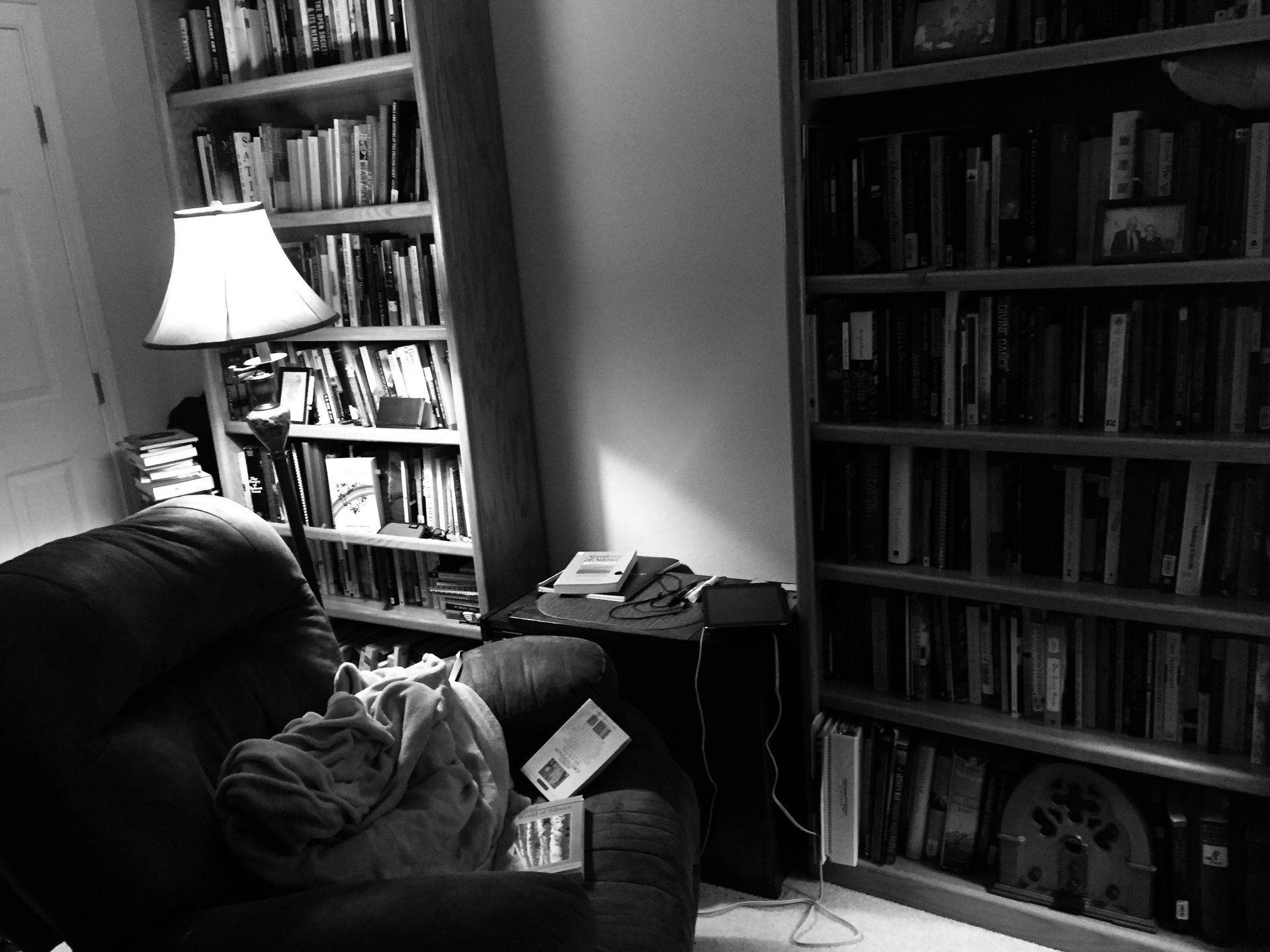My Intimate Relationships With Books I
“He ate and drank the precious words,
His spirit grew robust;
He knew no more that he was poor,
Nor that his frame was dust.
He danced along the dingy days,
And this bequest of wings
Was but a book. What liberty
A loosened spirit brings!”
~Emily Dickinson,
The Collected Poems of Emily Dickinson , p. 17
Imagine how we describe books–I hated that book, I loved that other, that book was tiring, so inspiring that one. We have personal relationships with books, some more intimate than others, some more clinical, some more dispassionate, some deeply passionate, some books may even stalk us and we can't get them out of our heads, some we can't get out of our hearts.
We use
books just as we use people. Lovingly or
with disdain. Out of necessity or out of
joy. But unlike unsuccessful relationships, book lovers can’t just dump the
offending others, can’t discard them, can’t rip them up and throw them away. We
fear damaging a book, and to toss one into the garbage would be heresy. We find
homes for books we can’t continue to keep around, whether it be a library or a
thrift store or a senior citizen’s center or a school.
I have a long, almost lifetime, relationship with some books I don’t even remember, which started when one of my parents read to me before bedtime or in my crib. Other books betray me with their false promises and, spurned, I slap them shut, shove them into the wall of my bookcase or toss them aside, and never allow them into my life again (this a mild form of domestic biblio-buse if you will). Though, like a best friend, books we have read will always be there, somewhere inside us, part of the vantage point from where we view all things.
The ultimate reading experience for me is to sit down with a book in my hands. Digital books cannot have that concrete physical connection with me that a bound volume has. I can’t smell a musty, old, used Kindle and I can’t flip through a CD. There is nothing visceral about them, nothing organic, no ink or paper pheromones float around to be swept up into a chemical reaction between me and a plastic tablet. I don’t listen to audio books so I don't have a relationship with them, though perhaps I should give them a chance. It is the experience of holding a book, touching it, leaving my mark on it even as it leaves its mark on me, that makes reading an almost interpersonal experience.
I interact with books, yes, with my hands, my eyes, my heart, my head and, yes again, sometimes with my soul. The relationship is intimate—and though I can’t change the book I am reading directly, I can touch it, and it me, and I am as vulnerable as I will ever be. Open to new ideas, open to having my heart broken or stirred, open to finding myself as lesser than I had thought of myself or want others to see me. Open.
Dickinson, E. (2004). The collected poems of Emily Dickinson . New, NY: Fine Creative Media, Inc.











